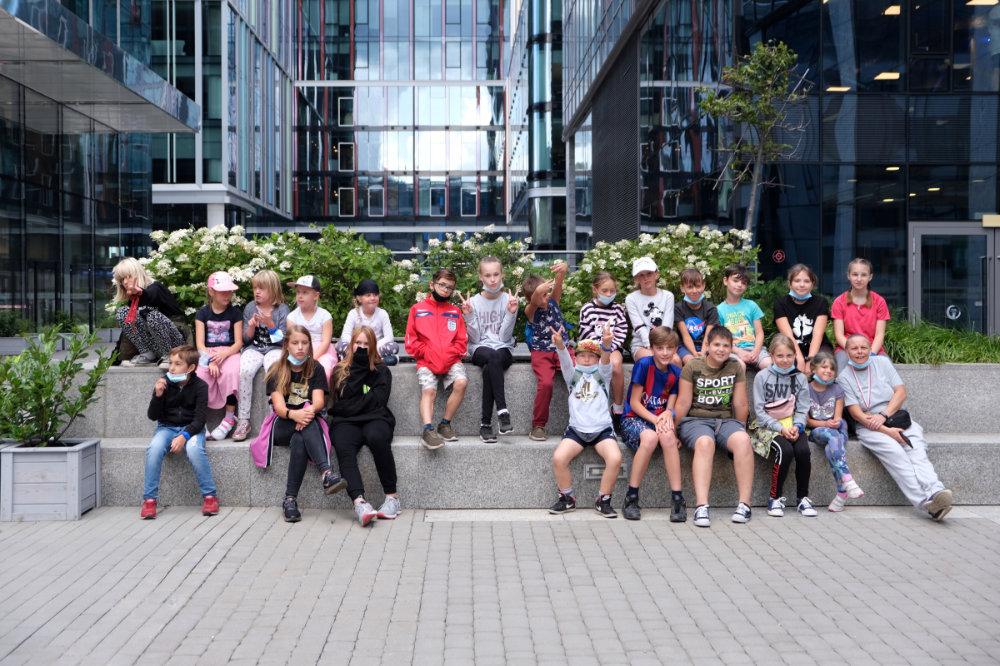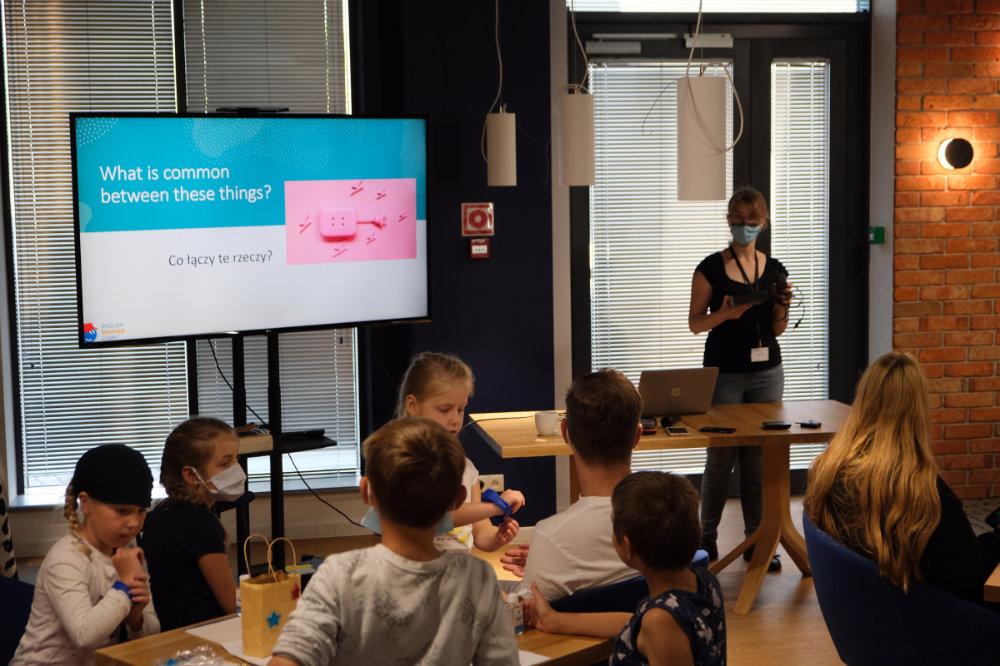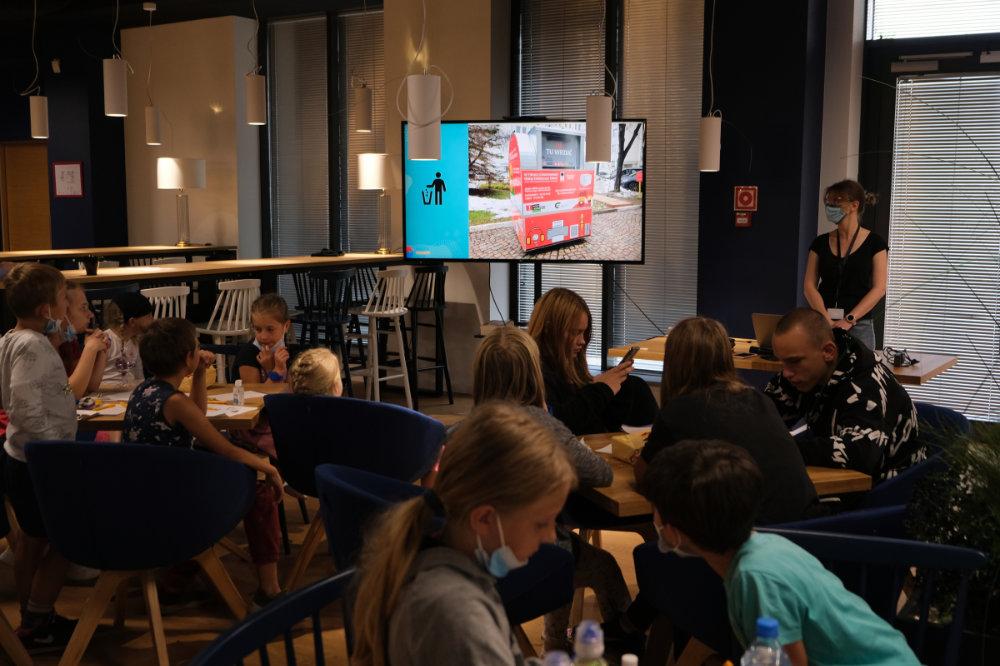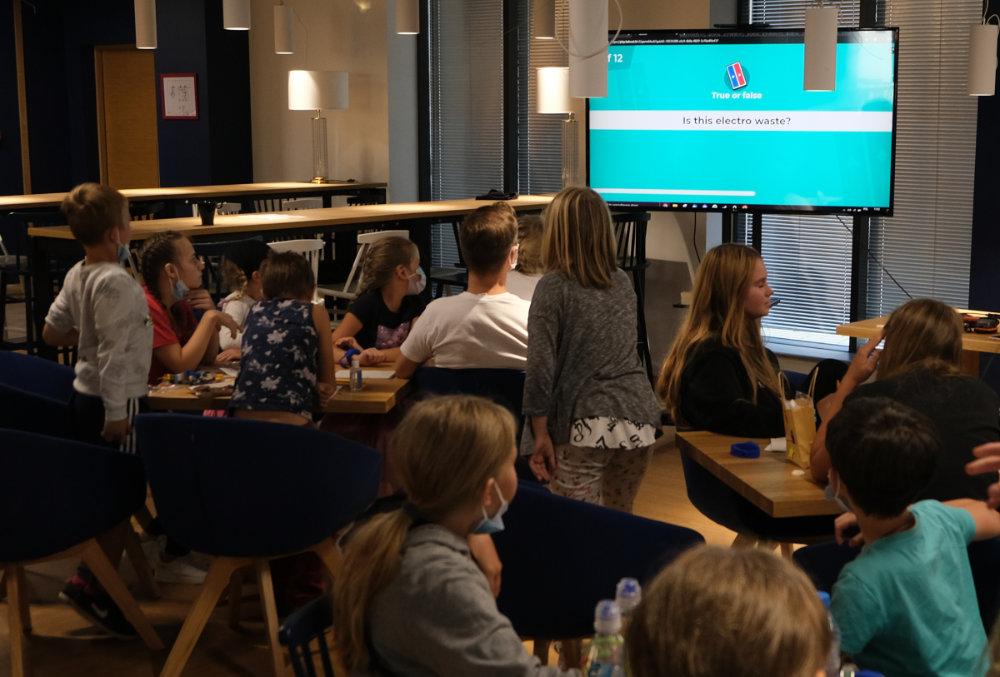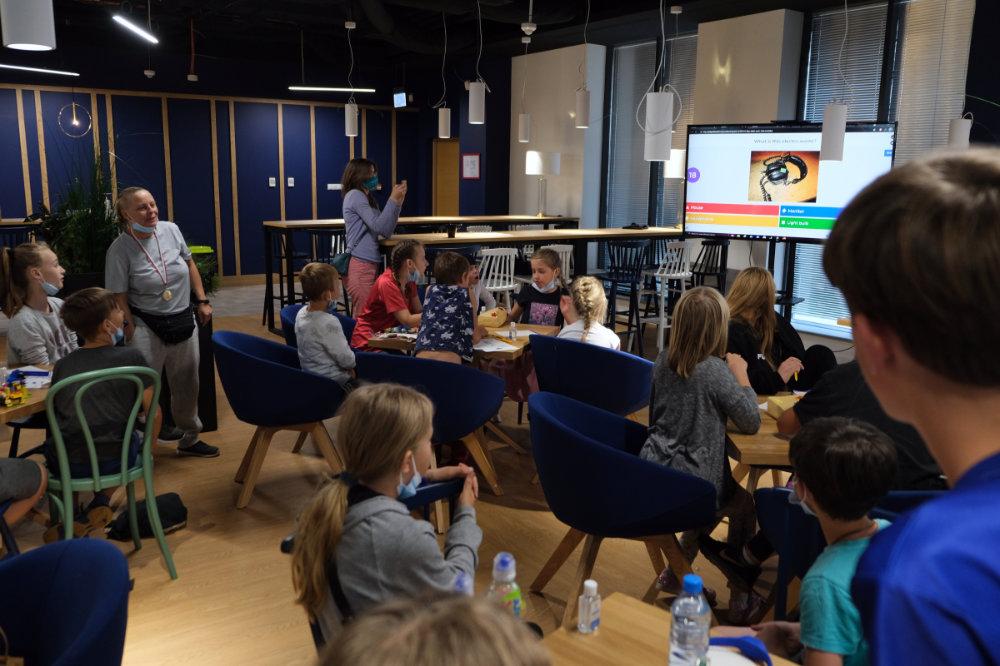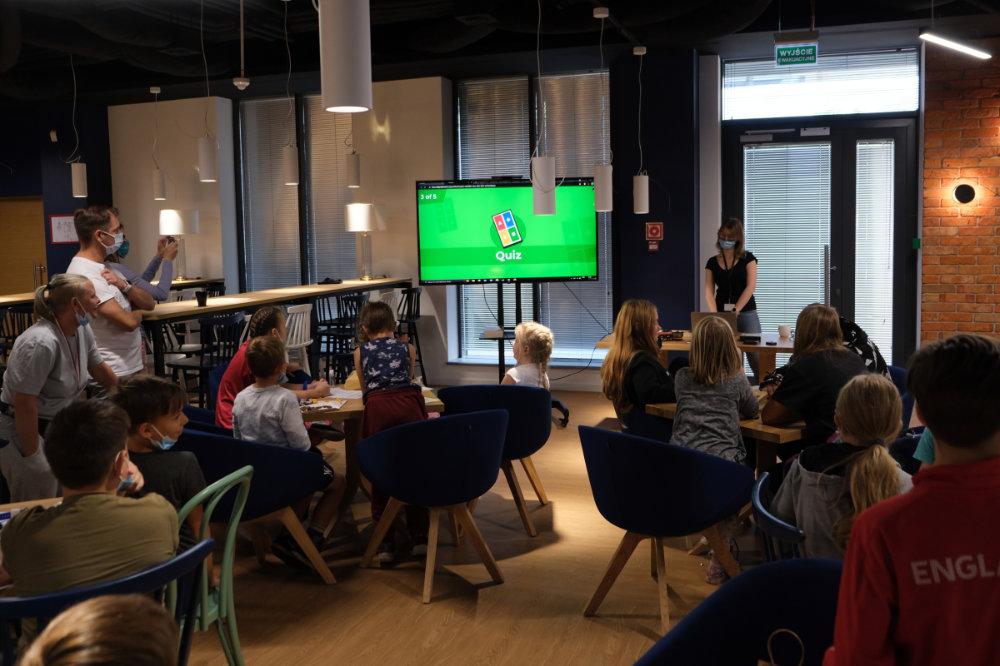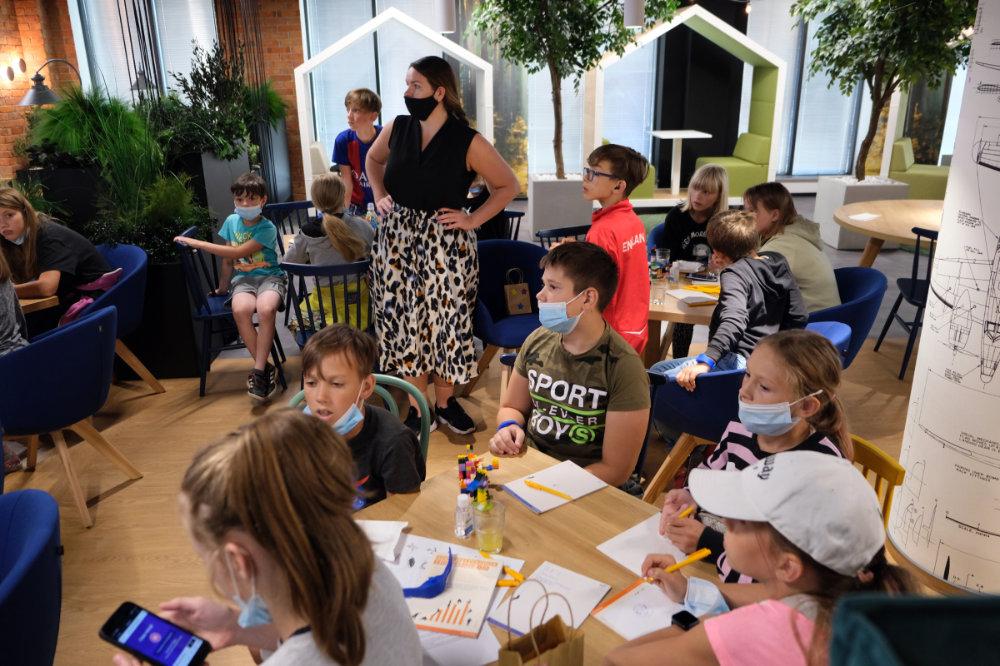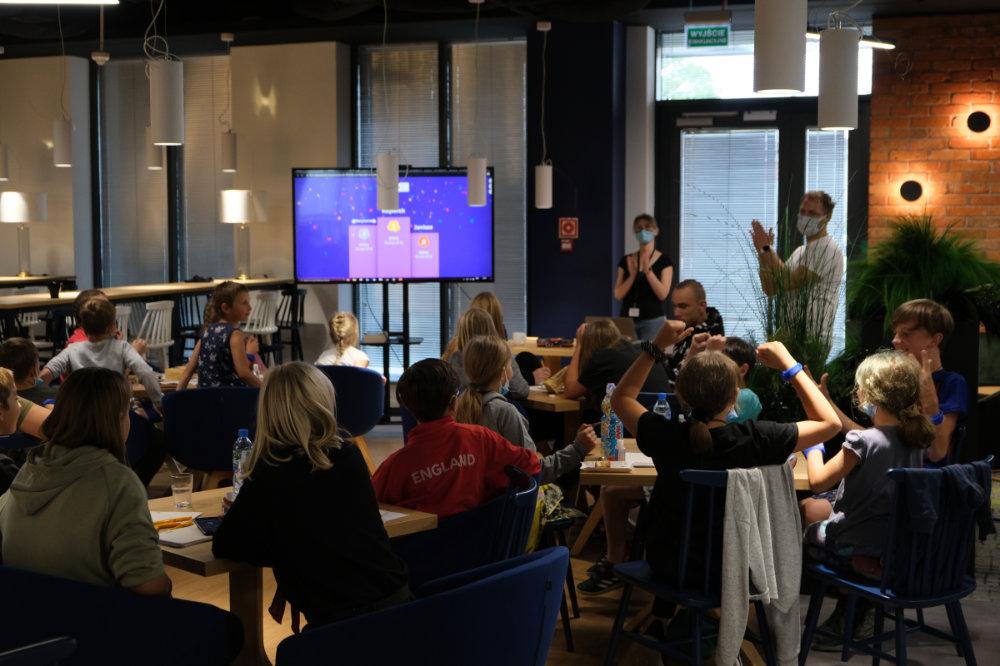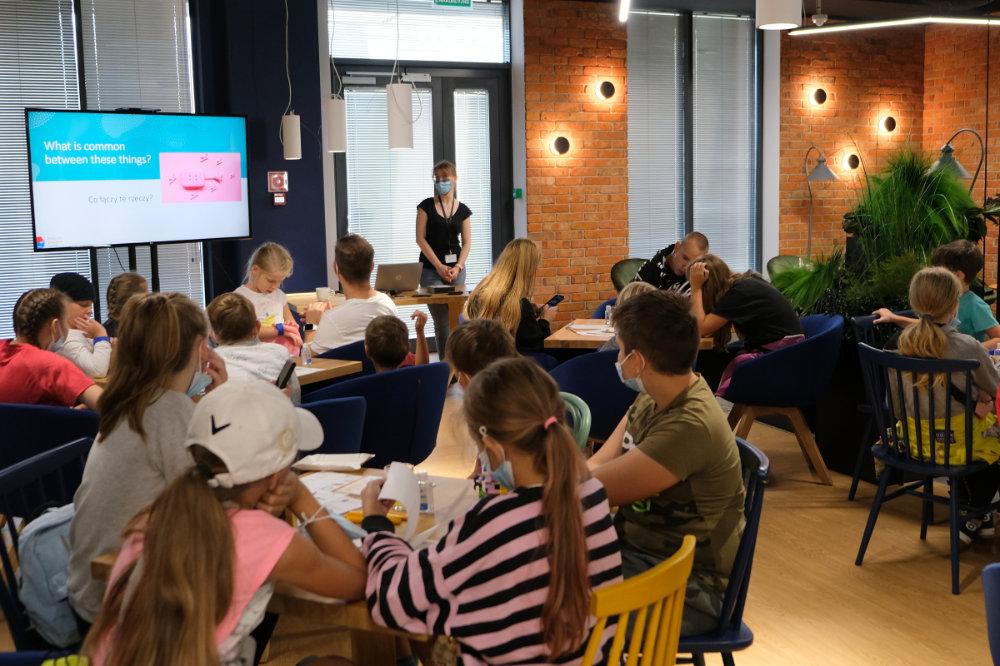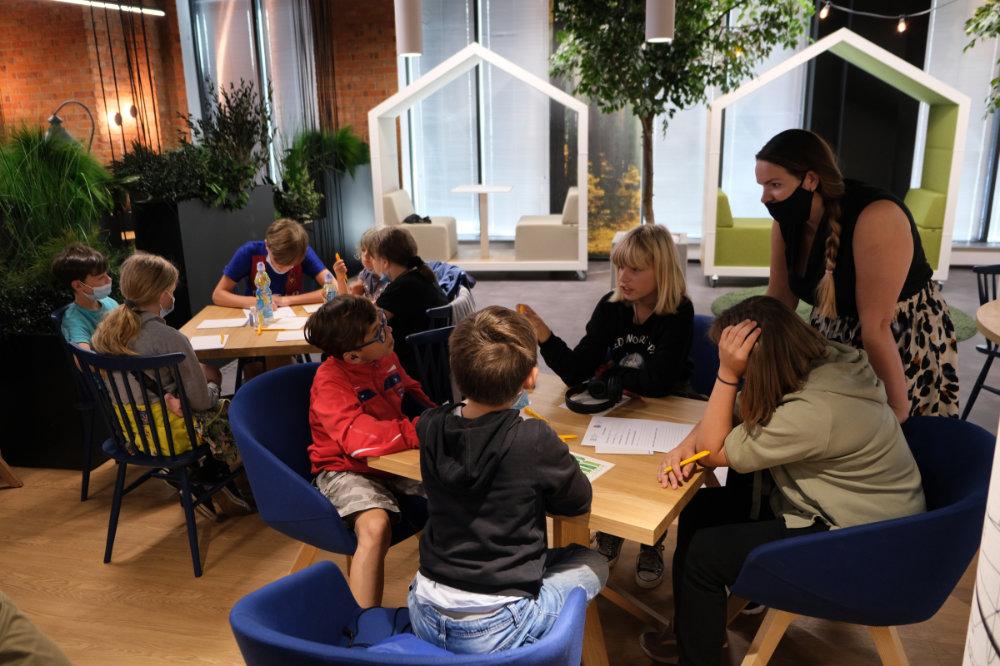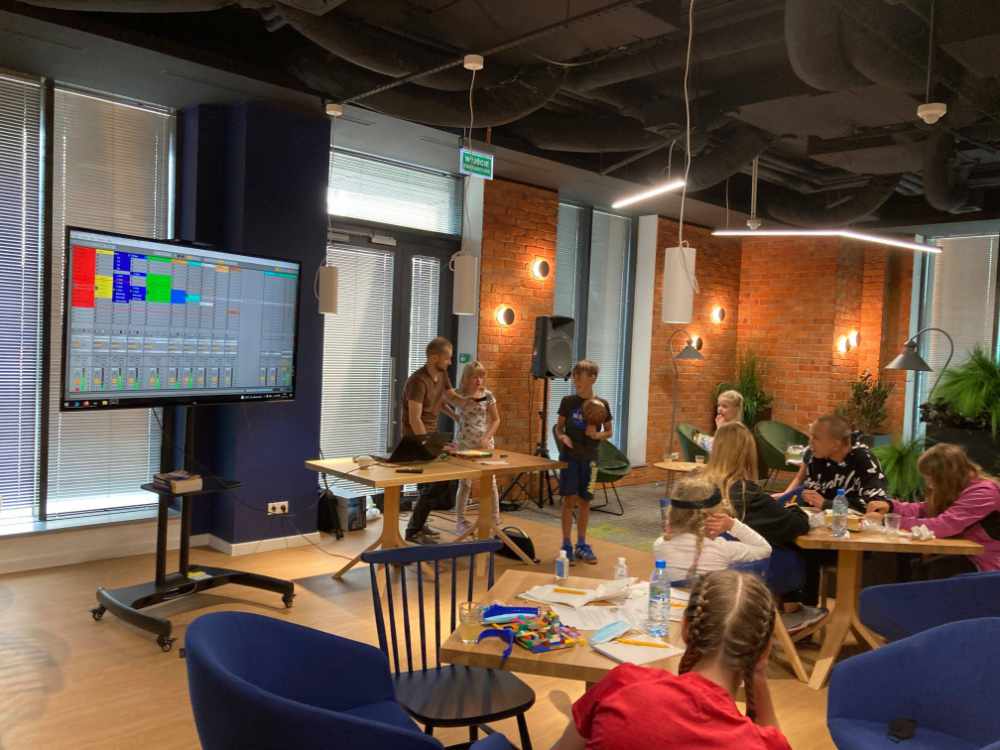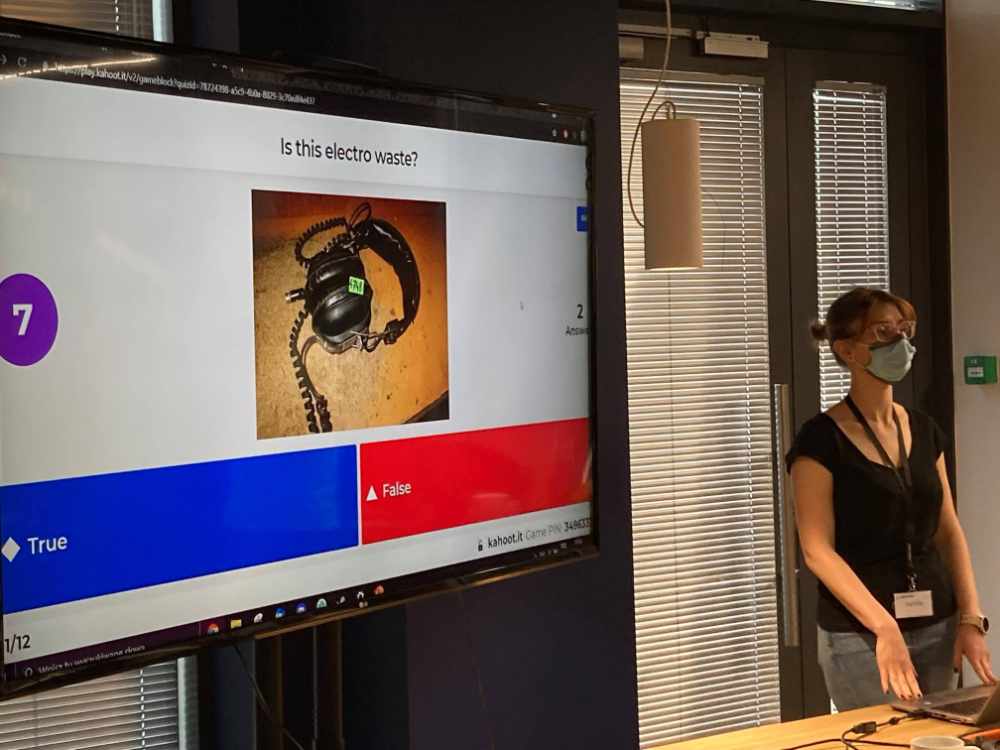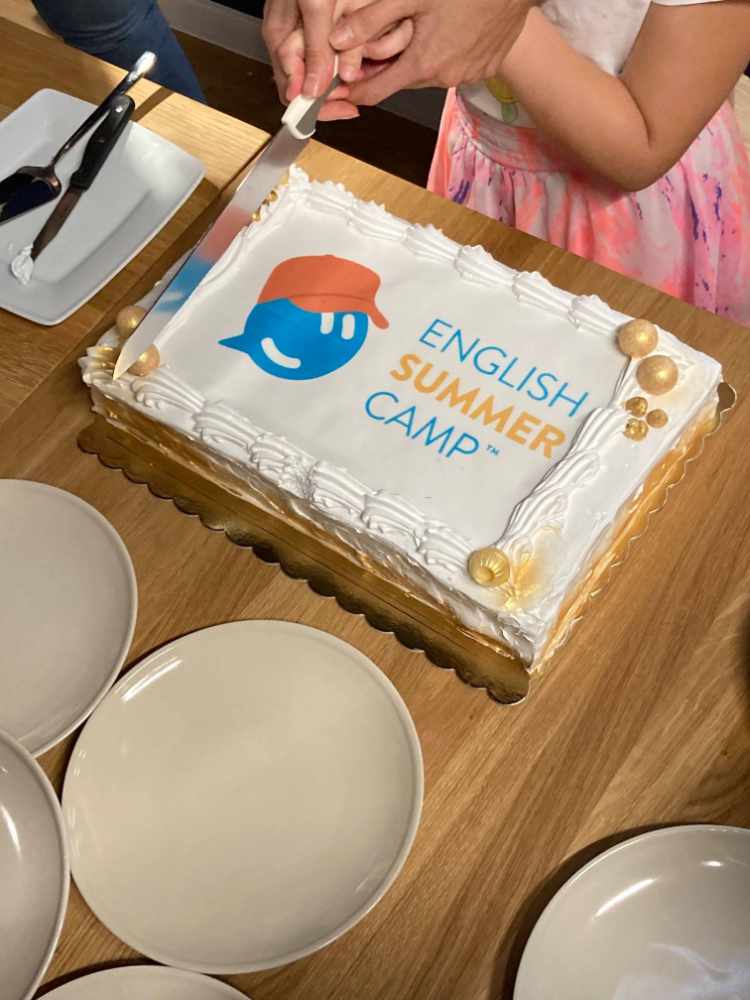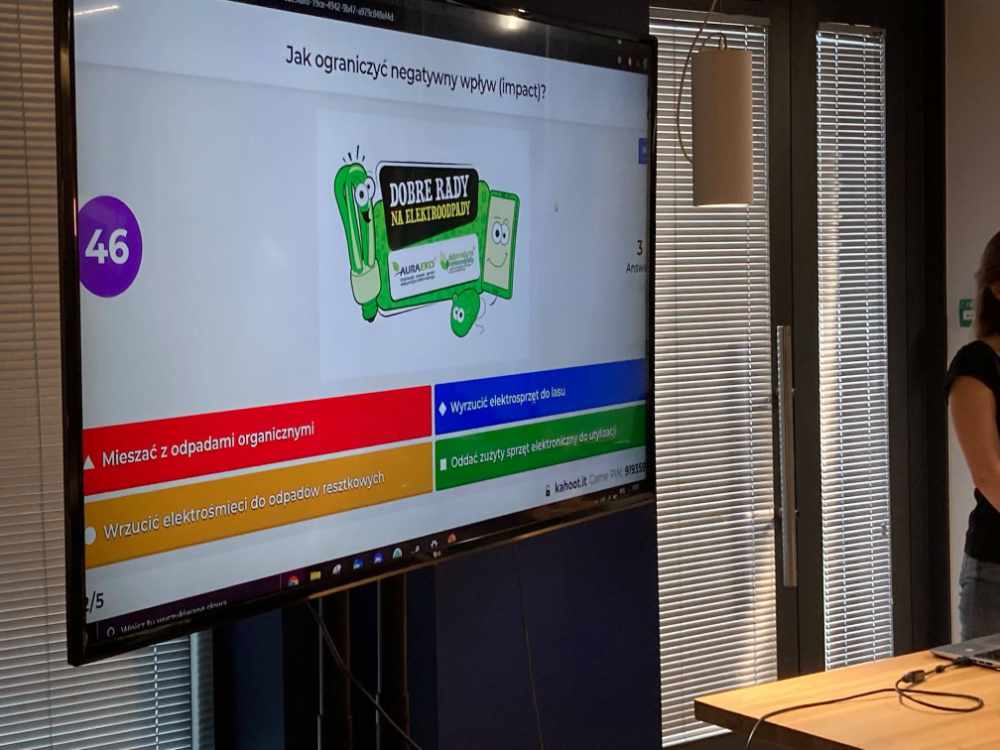English Summer Camp 2021
The next edition of the PMI English Summer Camp is behind us, and along with it, further environmental education class prepared in cooperation with AURAEKO Organization of Electrical and Electronic Equipment Recovery. Workshops for participants aged 8-16 were conducted in an interactive form in order to maintain the involvement and interest of young people. This year, for the first time, elements of English vocabulary were included in the educational materials.
As part of the introduction, the children were shown a few used devices such as a disk drive, broken headphones, an old microphone, and asked about the connection between these things. The opinion of the children was very accurate, as it pointed the use of electricity by all of the presented devices and a different method of disposal than in the case of municipal waste.
The interactive tool for conducting group quizzes was Kahoot application installed on children’s smartphones. The task in the first quiz was to determine (true/false) whether the waste presented in the picture is actually electro-waste.
Afterwards it was discussed what electro-waste is and what groups we can divide it into. Imagination did not leave our participants, as they were able to provide many examples for each group. After this stage, children were ready for the next quiz – an indication of what electro-waste was displayed on the screen, where the words were given in English.
After the group work and competition, there were presented the threats that may be caused by improper management of electro-waste, both for human health and the environment. Knowing the possible danger, we could focus on what we can do to eliminate the negative impact of electronic equipment in our environment. According to the 3R principle, reduction, reuse and recycle were mentioned. Again, the youth surprised the organizers with relevant examples from everyday life for each of the stages.
The workshop ended with a third quiz, summarizing the issues of threats and ways to reduce the negative impact of electro-waste on the environment. We hope that the participants’ high scores and good answers to tricky questions are the evidence of their deep understanding of the problem and methods for the rational use of electrical and electronic equipment.
